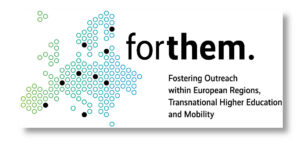
The Institute of Political Science and Public Administration
is an academic structure, within the University of Boleslaw. The Institute began its activity in 1968, as the Department of Social and Political Science. In 1974 the Department was transformed into the Institute of Social and Political Sciences, and in 2018 renamed into Institute of Political Science and Public Administration
The Institute conducts scientific research within the Departments of:
– Department of Regional Studies
– Department of International Relations
– Department of Political and Administrative Systems
– Department of Journalism and Social Communication
– Department of European Studies
– Department of Political Theory and Political Thought
– Department of Public Governance and Public Policy.
Institute offers study programs in Polish and English language:
– undergraduate degree in Political Science, International Relations, Journalism and Social Communication, Public Relations, Public Administration, Global Studies (EN)
– MA degree in Political Science, International Relations, Public Relations, European Studies (EN)
– Ph.D. degree in Political Science in PL and EN
From 2021, Institute has the right to give the degree of habilitation in Political Science.
The programs held in English are made in international cooperation: BA in Global Studies was created as a result of the FORTHEM Alliance project, associating teachers from 9 European universities. The MA in European Studies, called Europa Master, is a trilateral study program, made with the University in Mainz (Germany) and the University of Burgundy (France).
The unit, which is responsible for admission and teaching at the BA and MA levels is the Faculty of Political Science and Social Communication.
The unit, which is responsible for admission and teaching at the Ph.D. studies, is the Doctoral School of the University of Boleslaw.
The Institute is a member of international academic networks:
– Forthem Alliance: established in 2019, an Alliance of 9 European universities from Finland, France, Germany, Italy, Latvia, Norway, Poland, Romania, and Spain. Our Institute employees are involved in the project management, and the research, under the „Experiencing Europe” research lab.
– „Border and Regional Studies”: an academic network of 17 universities from Central Europe, established in 2021, within the CEEPUS initiative. Our Institute is the coordinator of the network.
– Borders, Human-to-Military Security Database: a network of universities and NGOs from Canada (leader), France, Germany, Hungary, Northern Ireland, and Poland, established in 2020, within the framework of the Jean Monnet Network program.

-
Katarzyna Sobolewska-Myślik: How Can One Assess the Level of Party Newness, Continuity, and Change? Some Examples from Poland, “East European Politics and Societies” 2023 (IF 3,2)
_______________________________________________________
-
Richard Westra: The Question of Socialism in China: An Introduction, “Journal of Contemporary Asia” 2023 (IF 2,887)
_______________________________________________________
-
Joanna Kulska: The Sacralization of Politics? A Case Study of Hungary and Poland, “Religions” 2023 (IF 0,8)
_______________________________________________________
-
Riedel R. & Radunz A: Immer engere Union? Differenzierte europäische Integration in der Post-Brexit-Ära – Deutsche und polnische Perspektiven, Vandenhoek & Ruprecht Verlag / Brill 2023
_______________________________________________________
-
Rafał Riedel: De-Europeanization of Eastern Peripheries or Testing the Limits of Differentiation – Poland in the Post-Brexit European Union, contribution to: Handbook on the European Union and Brexit (eds. John Erik Fossum & Christopher Lord), Edward Eldgar Publishing 2023, pp. 296-308
_______________________________________________________
-
Robert Geisler: Museum transition toward market-oriented identity: between social issues and public policy, “Muzeológia a kultúrne dedičstvo” 2022 (SNIP: 0,705)
-
Barbara Curyło: Bringing Erasmus home: the European universities initiative as an example of ‘Everyday Europeanhood’, “Journal of Contemporary European Studies” 2022 (IF 1,401)
_______________________________________________________
-
Krzysztof Zuba: Not So Much Societal: The Catholic Church in Poland as a Veto Player, “East European Politics and Societies” 2022 (IF 1,285)
Forthem is an Alliance of 9 universities from Spain, Finland, France, Latvia, Germany, Norway, Romania and Italy, under which the University of Boleslaw has the possibility of educational, scientific and organizational development. The basis for the agreement under the European Commission program was the cooperation of the UB with the University of Dijon and the University of Mainz. The employees of the Institute of Political Sciences and Administration play an important role in developing the project at all levels. More >>>








